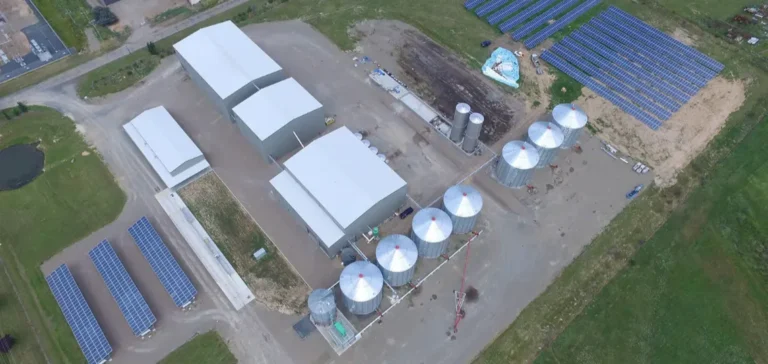Fonds de solidarité FTQ Bioénergie has announced a strategic equity investment in Québec-based company Keridis BioEnergy, which specialises in the development, financing and operation of agricultural biomethanation plants. The transaction aims to strengthen renewable natural gas (RNG) and biofertiliser production capacities in the province, with industrial projects expected to begin operating from 2027.
The partnership will allow Fonds Bioénergie to acquire equity in already-financed projects while promoting industrial synergies with other companies in its portfolio. This active positioning reinforces its role within Québec’s biomethanation ecosystem, a developing sector built around the recovery of organic residues from agricultural, agri-food and industrial sources.
An integrated model focused on operational assets
Founded in 2021, Keridis BioEnergy has positioned itself as a key player in Québec’s RNG sector, drawing on the expertise of its founding partners, Viridis Environnement and Groupe Keon. These companies bring experience from over 100 installations in Europe, giving the young firm access to proven technical capabilities in designing and operating biomethanation facilities.
Fonds Bioénergie’s investment gives Keridis additional leverage to expand a network of regional-scale sites. The goal is to develop human-scale plants suited to local agricultural realities, while complying with Québec’s regulatory framework.
A lever for accelerating the sustainable portfolio
This transaction is aligned with Fonds de solidarité FTQ’s strategic objective to reach CAD12bn ($8.7bn) in sustainable development assets by 2027. Through this commitment, the group aims to become a major investor in the province’s energy transition, particularly in infrastructure that converts organic waste into energy.
Keridis BioEnergy’s integration into the Fonds ecosystem also paves the way for future industrial collaborations and shared operational capacities. By taking direct stakes in revenue-generating assets, Fonds Bioénergie strengthens its long-term investment strategy in alternatives to fossil-based natural gas.






















